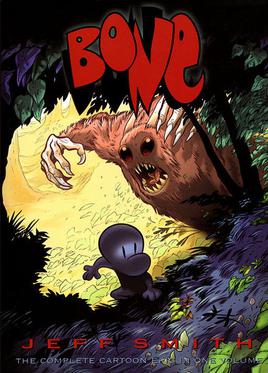Founded in 1934 and originally known as National Allied Publications, it wouldn't be until the company is saved from bankruptcy by changing leadership that DC would be known by the name it holds today. (DC is short for Detective Comics, one of its initial series that would introduce the character of Batman.) Today, DC Comics is the publishing branch of DC Entertainment, which owned by umbrella company Time-Warner. It franchises include the ever-popular Batman, Superman, Wonder Woman, Green Arrow, and the Justice League. Watchmen, a graphic novel by Alan Moore and Dave Gibbons, is also a notable achievement for DC, as it is the only graphic novel to ever win a Hugo Award. Vertigo, a subsidiary publisher under DC, is responsible for such staples as V for Vendetta, Fables, Sandman, and Y: The Last Man.
 |
| Cover art for the first trade volume of Y: The Last Man |
 A few years after DC is founded, Marvel comics would be created in 1939 as Timely Publications. Timely's first series was called Marvel Comics, and the company would eventually take that name much later in 1962. (CITATION) During that year, Stan Lee and Jack Kirby, among others, would launch some of Marvel's most notable franchises such as the Fantastic Four, Spiderman and the X-Men. Their new take on superheros struck a chord with readers that lets the characters endure to this day, pulling in money not just from comics but also from a slew of movies. Today, Marvel Comics is the publishing branch of Marvel Entertainment which is now owned by the Walt Disney Company.
A few years after DC is founded, Marvel comics would be created in 1939 as Timely Publications. Timely's first series was called Marvel Comics, and the company would eventually take that name much later in 1962. (CITATION) During that year, Stan Lee and Jack Kirby, among others, would launch some of Marvel's most notable franchises such as the Fantastic Four, Spiderman and the X-Men. Their new take on superheros struck a chord with readers that lets the characters endure to this day, pulling in money not just from comics but also from a slew of movies. Today, Marvel Comics is the publishing branch of Marvel Entertainment which is now owned by the Walt Disney Company.The rivalry between the two can be seen in mirrored characters (DC's Aquaman versus Marvel's Namor the Sub-Mariner) and in the copyright battle over the character name Captain Marvel in 1967. Sales for 2014 show Marvel earned approximately 34% of the comic industry's money that year, with DC earning about 29%. Where is the rest? Divided up among the smaller publishers and the up-and-coming threats like Image.
They’re coming from a company called Image.
Those comic books are called The Wicked + The Divine, Saga,
East of West, Bitch Planet, Chew, Rat Queens, Sex Criminals, and Pretty Deadly.
They dominated 2014’s “best comics” lists. They told stories of gods as pop
stars, sci-fi Westerns, people who can stop time with their orgasms, and
melodramatic space operas filled with both magic and Shakespeare — stuff you
wouldn’t find anywhere else."
--Alex Abad-Santos, vox.com
Image formed in 1992, but it wasn't until after some ups-and-downs that in 2009 the company really began to hit its stride. Last year, it earned roughly 9% of all comic sales. (Compared to Marvel and DC, it may not seem like much, but it still far outdoes fourth place earner IDW's 5.69%.) Image does not restrict itself to stories of superheroes (although super powers abound), instead allowing its writers and artists to create more mature stories, so it is able to distinct itself from Marvel and DC. Many of its series have won Eisner Awards, including Saga, Bone, and pop culture's darling The Walking Dead.
Dark Horse and IDW have their hits as well, and Viz Media can not be ignored if you look into the influx of Japanese comics in America, but these are the top three publishers in the comics/graphic novel industry, the logos most likely to catch your eye the moment you walk into a comic shop.
Resources
- Daniels, Les. (1995) DC Comics: Sixty Years of the World's Favorite Comic Book Heroes. New York, NY: DC Comics.
- The Hugo Awards official website, accessed at http://www.thehugoawards.org/. The Ask-A-Question section addresses the 'controversy' of Watchmen's win.
- Howe, Sean. (2012) Marvel Comics: The Untold Story.
- Mozzocco, J. Caleb. (2012) "DC's Captain Marvel Officially Changing His Name to the Non-Trademark Infringing 'Shazam'." Comics Alliance, accessed at http://comicsalliance.com/dc-captain-marvel-name-change-shazam/.
- Rapoport, Michael. (2015) "Marvel Dominated Comic Sales in 2014." The Wall Street Journal, accessed at http://blogs.wsj.com/speakeasy/2015/01/09/best-selling-comics-2014/
- Abad-Santos, Alex. (2015) "Image's Comic Books are Insane. That's Why People Can't Stop Reading Them." Vox, accessed at http://www.vox.com/2015/1/22/7864127/image-comic-books



No comments:
Post a Comment